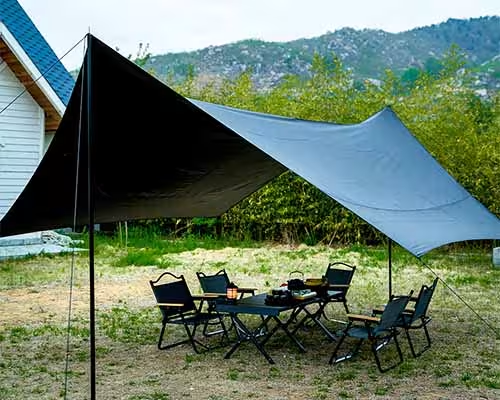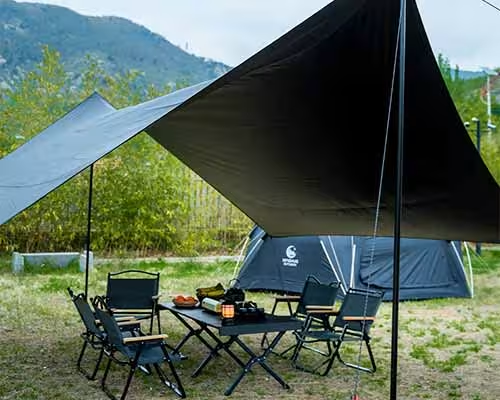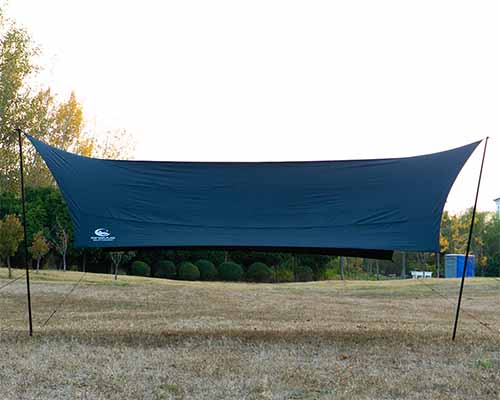Welcome to My Blog!
Before we dive into the content, I’d love for you to join me on my social media platforms where I share more insights, engage with the community, and post updates. Here’s how you can connect with me:
Facebook:https://www.facebook.com/profile.php?id=61569274896143
Now, let’s get started on our journey together. I hope you find the content here insightful, engaging, and valuable.
Table of Contents
Introduction

Organizing outdoor events highlights the need for reliable shelter against harsh weather. A heavy duty canopy tent is crucial, providing essential protection beyond a simple cover. However, quality varies significantly, with material, frame, and UV resistance determining longevity.
This guide will define what makes a heavy duty canopy tent truly robust, offering insights on selection for diverse needs, technical specifications, and future trends. It aims to equip outdoor retailers, camping enthusiasts, and event organizers with essential knowledge for investing in durable outdoor gear.
Understanding the Core of Heavy Duty Canopy Tents
A heavy duty canopy tent is not your average market stall tent. It is designed for stability, durability, and adaptability to multiple weather conditions and uses. The backbone of these tents is typically built from materials like reinforced aluminum alloy or powder-coated steel for superior structural integrity.
What Defines a “Heavy Duty” Tent?
- Material Strength: Double-layer polyester or ripstop fabric treated with PU or PVC coating.
- Frame Construction: Thickened aluminum poles, steel connectors, rust-proof finishes.
- Wind Resistance: Can handle wind speeds up to 40-60 km/h when properly secured.
- Water Resistance: Sealed seams, 2000mm+ water column ratings.
- UV Protection: UPF 50+ sun protection for outdoor events and camping.
These features ensure the tent not only protects from weather but withstands repeated setups and teardowns—a critical factor for event organizers and retailers alike.
Choosing the Right Heavy Duty Canopy Tent: A Buyer’s Guide
Purchasing a heavy duty canopy tent can feel overwhelming given the countless options on the market. Here’s a simple guide to help you match the right tent to your purpose.
1. Determine the Intended Use
- Outdoor Events & Trade Shows: Look for quick setup pop-up models with spacious layouts.
- Camping & Hiking: Consider lightweight models that balance portability with strength.
- Glamping & Resorts: Prioritize aesthetics alongside durability—stylish, waterproof fabric and elegant framing.
2. Check the Frame Quality
Aluminum frames offer corrosion resistance and lighter weight; steel frames provide unmatched strength but at a weight cost.
3. Evaluate Canopy Fabric
A heavy duty canopy tent’s life largely depends on its fabric. Polyester with PVC or PU coating is popular for its waterproof and tear-resistant properties.
4. Portability & Storage
Choose tents with wheeled carry bags, folding mechanisms, and modular designs if frequent transport is needed.
5. Set-Up Complexity
If you’re setting up solo, opt for a pop-up design. Larger event or hotel-style canopy tents may require a team for safe assembly.
Comparing Heavy Duty Canopy Tents: Features at a Glance
Here’s a comparison table to help visualize the differences between the most common types of heavy duty canopy tents.
| Feature | Pop-Up Heavy Duty Tent | Tunnel Heavy Duty Tent | Glamping/Hotel Heavy Duty Tent | Ultra-Light Trekking Tent |
|---|---|---|---|---|
| Frame Material | Aluminum/Steel Alloy | Reinforced Aluminum | Stainless Steel/Aluminum | High-Grade Aluminum |
| Weather Resistance | Rain, UV, Wind (Moderate) | Heavy Rain, Wind (Strong) | Heavy Rain, Snow, UV (Extreme) | Rain, UV (Light) |
| Set-Up Time | 5–10 minutes | 20–30 minutes | 60+ minutes (team needed) | 3–5 minutes (solo) |
| Best Use Case | Trade shows, markets | Basecamps, group hiking | Glamping sites, resorts | Solo hiking, ultralight camping |
| Portability | Medium (wheeled bag) | Low (requires vehicle) | Low (permanent/semi-permanent) | High (fits backpack) |
| UV Protection | UPF 50+ | UPF 50+ | UPF 50+ | UPF 30–50+ |
Technical Deep Dive: What Makes a Canopy Tent Truly “Heavy Duty”?
1. Advanced Fabric Technology
Top-tier heavy duty canopy tents use ripstop polyester treated with UV-inhibiting coatings, offering not just water resistance but also resistance against fading, mold, and mildew—crucial for long-term outdoor use.
2. Load-Bearing Frame Engineering
Using hexagonal cross-section poles (instead of round ones) increases strength and torsional resistance. Welded joints reduce frame flexing, extending tent life.
3. Waterproofing & Seam Sealing
Double-stitched seams with heat taping and reinforced stress points ensure no leaks even in heavy rain conditions. Higher hydrostatic head ratings (2000mm+) signal excellent waterproof capabilities.
4. Ventilation Systems
Canopy tents for hotels or glamping increasingly feature integrated ventilation systems—mesh panels, zippered windows—that improve airflow while keeping insects and moisture out.
5. Windproof Stability Features
Guy rope attachment points, ground stakes, and weighted leg options are essential to prevent blow-away accidents during sudden gusts.
Real-World Applications of Heavy Duty Canopy Tents
Outdoor Events & Exhibitions
For pop-up shops, food festivals, and trade shows, a heavy duty canopy tent provides both branding opportunity and reliable shelter from unpredictable weather.
Camping & Trekking Adventures
Backpackers and mountaineers benefit from ultra-light versions designed for quick deployment, compact storage, and reliable rain and wind protection.
Hospitality & Glamping Resorts
In luxurious outdoor hotels and eco-resorts, permanent or semi-permanent canopy structures offer elegant, weather-resistant spaces for guests to relax.
Construction & Industrial Use
On construction sites or industrial projects, heavy duty canopy tents serve as mobile workshops, equipment covers, or worker rest areas, thanks to their durability and large covered area.
Industry Trends: The Future of Heavy Duty Canopy Tents


- Sustainability Focus: Eco-friendly fabrics, recyclable materials, and carbon-neutral production processes.
- Smart Tents: Integrated solar panels and LED lighting systems are becoming popular in the event tent segment.
- Modular Designs: Customizable tents with attachable sidewalls, flooring, and multiple canopy sections to adapt to changing needs.
- Extreme Weather Adaptability: Designs suited for snow load-bearing or tropical storms, targeting adventure travel markets.
Conclusion
A heavy duty canopy tent is a crucial outdoor tool, not merely an accessory. Investing in a quality tent provides peace of mind, safety, and long-term value for diverse needs, from bustling outdoor markets to multi-day camping or glamping sites.
Before purchase, carefully consider your use case, desired features, and expected weather conditions. Quality materials, engineering precision, and thoughtful design combine to create a durable tent that withstands the elements. Invest in a reliable heavy duty canopy tent today and ensure your outdoor ventures are always protected and successful!
FAQ
What size of heavy duty canopy tent is best for outdoor events?
The ideal size depends on your expected foot traffic. 3×3 meters is common for single booths, while larger 6×6 or modular sizes are suited for big events.
How can I ensure my canopy tent withstands strong wind?
Always secure your tent with guy ropes, weights, and ground stakes. Choose models with reinforced frames designed for wind resistance.
Are heavy duty canopy tents waterproof?
Yes. Quality models feature water-resistant fabrics, sealed seams, and high hydrostatic head ratings to protect against rain.
Can I customize the color and branding of my canopy tent?
Absolutely. Many manufacturers, including us at Xingyue, offer OEM/ODM services for material, color, printing, and packaging customization.